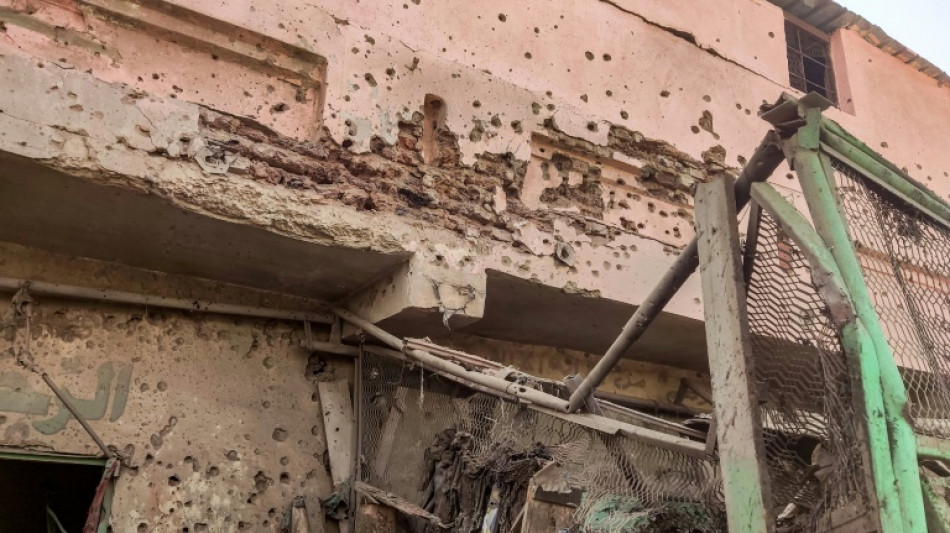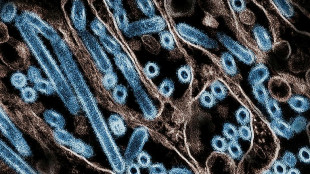

US slaps sanctions against Sudan after ceasefire violations
The United States announced sanctions Thursday on Sudanese leaders it blamed for the collapse of US and Saudi-brokered ceasefire efforts after shelling and air strikes killed 18 civilians at a Khartoum market.
For nearly seven weeks, Khartoum and other parts of Sudan have been gripped by bloody warfare between the army and the paramilitary Rapid Support Forces, both of which Washington held responsible for breaking the ceasefire and provoking "appalling" bloodshed.
"We are following through by levying economic sanctions, imposing visa restrictions against actors who are perpetuating the violence," US National Security Advisor Jake Sullivan said in a statement.
Fighting continued Thursday, with witnesses reporting "heavy artillery" in north Khartoum, days after the two sides had agreed to extend by five days an initial week-long ceasefire meant to allow essential aid deliveries.
The army on Wednesday blasted RSF bases in the capital after pulling out of the truce talks in the Saudi city of Jeddah, accusing its rival of violating the ceasefire.
"Eighteen civilians were killed and 106 wounded" by army artillery fire and aerial bombardments Wednesday on a market in southern Khartoum, a committee of human rights lawyers said.
The toll was confirmed by a neighbourhood group that organises aid, which said the situation was "catastrophic" and appealed for medical help and blood donations.
- Sanctions 'a tool' -
In both north and south Khartoum on Wednesday, troops loyal to army chief Abdel Fattah al-Burhan attacked key bases of the RSF led by commander Mohamed Hamdan Daglo, residents told AFP.
"Sanctions are a tool," according to Sudan expert Alex de Waal, who calls the northeast African country "a classic case where sanctions never solved the problems" they had meant to.
Sudan's warring sides both rose to power and built considerable wealth under decades-long sanctions against the regime of former dictator Omar al-Bashir, with Daglo's RSF controlling many of the country's lucrative gold mines.
According to Sudanese pro-democracy activist and author Raga Makawi, sanctions bring "inhumane consequences on communities and cities at large: they weaken economies and turn them towards illicit transactions".
Despite repeated pledges from both sides, fighting has flared this week both in greater Khartoum and in the western region of Darfur.
The health ministry published a list Thursday of 34 health facilities that "the rebel militia continues to use as army barracks" and has not vacated "despite the truce".
Since fighting erupted on April 15, more than 1,800 people have been killed, according to the Armed Conflict Location and Event Data Project.
The UN says 1.2 million people have been internally displaced and more than 425,000 have fled abroad.
Humanitarian corridors that had been promised with the ceasefire never materialised, according to aid agencies that have managed to deliver a fraction of the aid currently needed.
- Looting of food -
World Food Programme chief Cindy McCain condemned Thursday "the looting of WFP food and assets happening right now in El Obeid", 350 kilometres (220 miles) southwest of Khartoum.
Medics and humanitarian agencies have reported repeated looting since the start of the conflict, which has killed 18 aid workers.
"Food for 4.4 million people is at stake," McCain wrote on Twitter.
More than half the population -- 25 million people -- are now in need of aid and protection, the UN says.
Entire districts of Khartoum no longer have running water, electricity is only available for a few hours a week, and three quarters of hospitals in combat zones are not functioning.
Hundreds have been killed in Darfur, on Sudan's western border with Chad, the United Nations said.
The UNHCR said Thursday more than 100,000 Sudanese refugees had fled to Chad since April, and called for emergency financial support.
Darfur has never recovered from the years-long war that began in 2003 when a rebel uprising led strongman Omar al-Bashir to unleash the Janjaweed militia, from which the RSF are descended.
Experts say Burhan is facing increasing pressure from his own Islamist supporters and remnants of the Bashir regime, with whom he had built a symbiotic relationship in order to gain power.
E.Hughes--MC-UK




